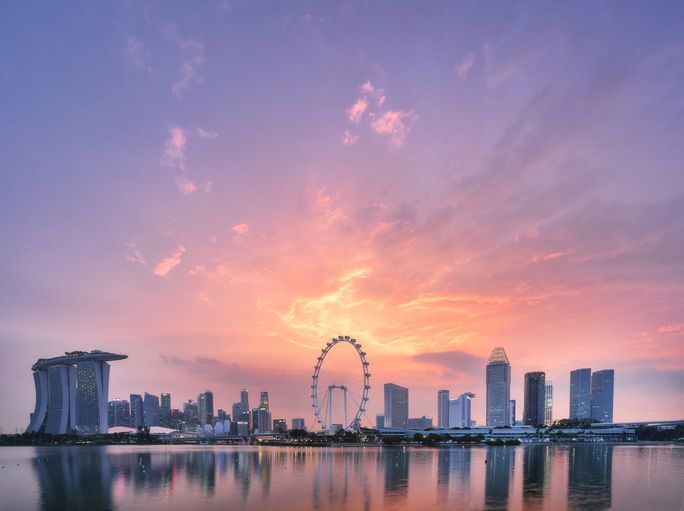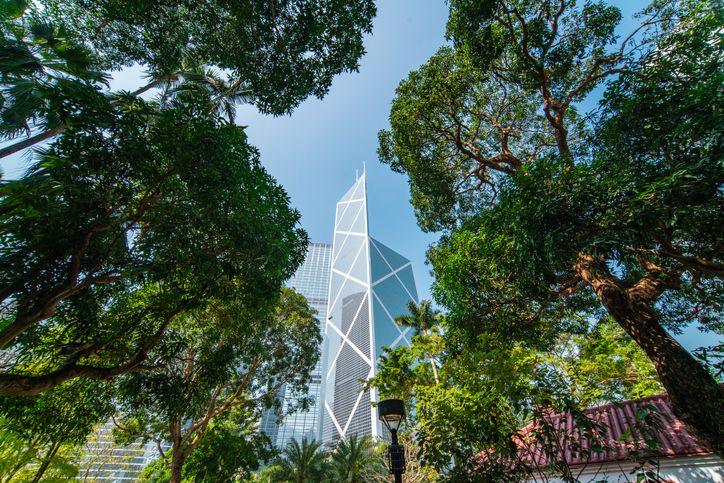As much as 40% of assets managed in Singapore incorporate ESG factors, with negative screening and ESG integration the most common strategies, comprising about 66% of those assets, a survey of 972 financial market participants by the Monetary Authority of Singapore (MAS) found.
“The pandemic has reinforced the importance of integrating sustainability into investments to safeguard against risks, while concurrently generating long-term value through better alignment of investment portfolios with global developments on climate and sustainability policies,” said the authors a report on the Singapore asset management industry, released this week.
Global net inflows into sustainable funds was $71.1bn in the second quarter of 2020, marking a 72% increase compared to the previous quarter, while Singapore’s share of ESG managed assets stood at 28% in 2019, one percentage point higher than a year earlier.
MAS highlighted UOB Asset Management and Fullerton Fund Management for taking “meaningful steps” in 2019 to expand their ESG teams and deepen capabilities in ESG investments, disclosure and stewardship.
It also reiterated that it wants Singapore to be a leading centre for green finance in Asia Pacific and globally, channelling capital to support the transition to a low carbon economy.
This is the key objective of MAS’s Green Finance Action Plan released last year, which outlines initiatives in three main areas: building financial sector resilience to environmental risks, developing green finance markets, and deploying technology and innovation to achieve green objectives.
GREEN INITIATIVES
The schemes that are relevant to asset managers include the launching of environmental risk management guidelines, which set out MAS’s supervisory expectations for financial institutions in the banking, insurance and asset management sectors for their governance, risk management and disclosure of environmental risk.
Details will be announced this quarter, and asset managers will have a year to make the necessary preparation before they implement the guidelines.
Another initiative is the creation of a $2bn green investments programme in November 2019 to invest in public market investment strategies that have a strong green focus.
“This will help to support the Singapore financial centre in promoting environmentally sustainable projects and mitigating climate change risks in Singapore and the region,” said the report.
In addition, Singapore is leaning on technological innovation to develop its sustainable investment sector.
For instance, the 2020 MAS Global FinTech Innovation Challenge attracted around 270 submissions from fintech firms across 40 countries to address 107 problem statements, with 25 asset managers participating.
Singapore is now host to 895 managers across the traditional and alternative sectors, and their aggregate AUM rose 15.7% in 2019 to reach $2.9trn, according to the MAS. Last year, 76% of AUM originated from outside of Singapore, and 69% of AUM was invested into Asia Pacific investments.
A separate survey of Singapore’s asset managers in August by the Investment Management Association of Singapore found that two-thirds of respondents believed the Covid-19 pandemic will increase the adoption of ESG investments.
Equities were by far considered the asset class that would attract the most ESG-related flows, receiving 76% of votes, followed by multi-asset (12%) and alternatives (8%), with fixed income a minority interest (4%).
In June this year, Jacqueline Loh, deputy managing director at the MAS, urged asset managers operating in Singapore to launching more ESG and sustainable funds.
“Asset managers should seize this opportunity to launch robust green and sustainable focused fund strategies, in anticipation of rising demand from investors in a post-Covid-19 world,” she said in a keynote speech during the Asian Venture Philanthropy Network Virtual Conference in Singapore.





